Cargando...
Recursos educativos
-
Nivel educativo
-
Competencias
-
Tipología
-
Idioma
-
Tipo de medio
-
Tipo de actividad
-
Destinatarios
-
Tipo de audiencia
-
Creador
Lo más buscado
- Medidor de distancia
- Escritura pautada
- Ahorro energético
- Juegos de tablas de multiplicar
- Reported speech
- Canciones en inglés
- Dictados de primaria
- Generador de anagramas
- Niños conflictivos
- Experimentos de acústica
- Aprender a dividir
- Alimentación saludable
- Guía de consumo responsable
- Relieve de Asia
- Actividades musicales
-
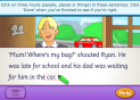
Word types
Topmarks Organización
- 3331 visitas
In this activity we identify parts of speech (nouns, verbs, adjectives, adverbs, pronouns, conjunctions, prepositions, articles) in a text.
-
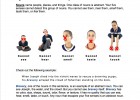
The Abstract Noun
Tiching explorer Organización
- 2811 visitas
This lesson explains the difference between abstract and concrete nouns using practical examples and offering a chart.
-
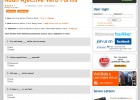
Noun Adjective Verb Forms
Tiching explorer Organización
- 1 lo usan
- 2533 visitas
This page defines nouns, verbs and adjectives. It also provides a multiple-choice exercise to practice distinguishing them.
-
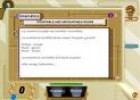
Products from Extremadura
Educarex Organización
- 5333 visitas
Activity designed to help us practice the use of countable and uncountable nouns. We improve oral and written skills.
-
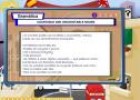
Talking about food
Educarex Organización
- 2 lo usan
- 4864 visitas
Activity designed to help us practice the use of countable and uncountable nouns. We improve oral and written skills.
-
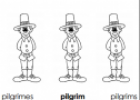
Thanksgiving more than one
Tiching explorer Organización
- 1 lo usan
- 2062 visitas
Printable worksheet (PDF file) designed to help us identify plural nouns. We revise vocabulary associated to Thanksgiving.
-
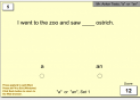
I went to the zoo
Tiching explorer Organización
- 2113 visitas
In this activity we practice the use of "a" or "an" before nouns.
-

Grammar - Go back to the text
EduBook Organización
- 1532 visitas
Countable and Uncountable Nouns Some nouns in English are countable. They have a singular and plural form. For example: an island → islands (noun + -s regular plural) a man → men (irregular plural)…
-

Complete: some, any, a or an
EduBook Organización
- 1275 visitas
Some, any, a or an We use some in front of nouns in affirmative sentences We use any in front of nouns in questions We also use it in negative sentences We use a with singular nouns which begin with a…
-

Much / many (I)
EduBook Organización
- 1748 visitas
There are too many people and too much confusion. we can count the people (countable) we use MANY for countable nouns we can’t count confusion (uncountable) we use MUCH for uncountable nouns Decide if…
Te estamos redirigiendo a la ficha del libro...










